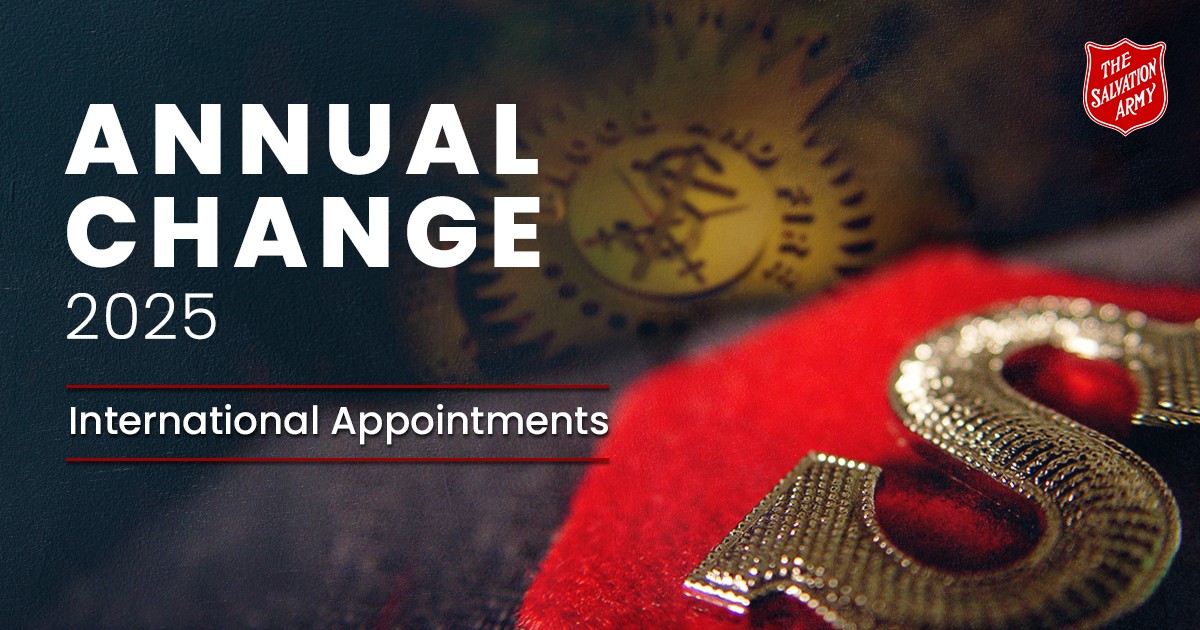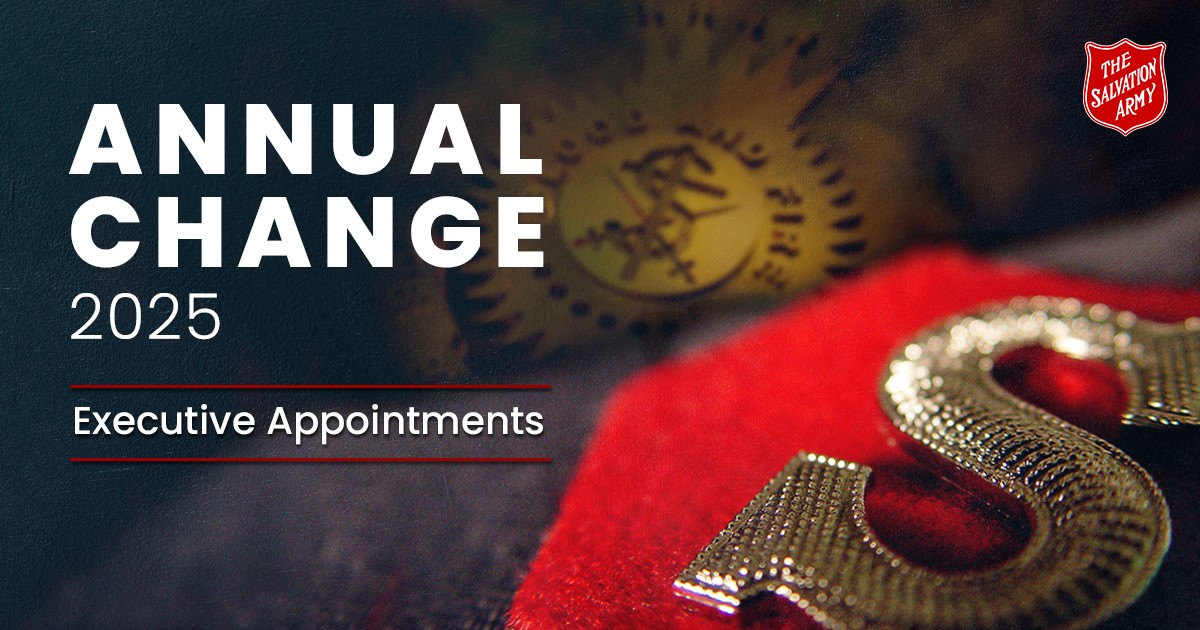 It's a classic rags-to-riches story Frank O'Dea never tires of telling and audiences worldwide are unceasingly inspired by. O'Dea's name, probably not as recognizable as The Second Cup, the cutting-edge coffee shop franchise business he co-founded, is a Canadian of extraordinary courage, overcoming life obstacles that might well have deterred a person of lesser faith. Prior to Christmas, O'Dea told his story to some four-hundred community and business leaders gathered for The Salvation Army's inaugural Hope in the City Leadership Breakfast in downtown Toronto.
It's a classic rags-to-riches story Frank O'Dea never tires of telling and audiences worldwide are unceasingly inspired by. O'Dea's name, probably not as recognizable as The Second Cup, the cutting-edge coffee shop franchise business he co-founded, is a Canadian of extraordinary courage, overcoming life obstacles that might well have deterred a person of lesser faith. Prior to Christmas, O'Dea told his story to some four-hundred community and business leaders gathered for The Salvation Army's inaugural Hope in the City Leadership Breakfast in downtown Toronto.
Born Francis O'Dea in 1945 of a loving Montreal family of high moral and life values, Frank should have found an easy path to manhood. But that was not to be. He was sexually abused as a young boy; little wonder, some say, alcohol became an all-too-familiar companion in his teens and threatened to destroy his life and that of his family. That's why Frank's father took a “tough love” stance, ordering his son to leave home with no family contact until he straightened himself out.
In his recently published memoir, When All You Have Is Hope, O'Dea says he always had hope. “Without hope you perish,” he told the morning audience. In his years as a self-described panhandler, O'Dea's definition of hope was 99 cents to buy a drink, a place to sleep near his adopted home─a park bench, or The Salvation Army's Harbourlight Centre at Jarvis and Shuter Streets where Frank spent more than one cold night. “Passersby can never really get close to street people, the homeless, and they will never know their backgrounds, needs and potential─that takes trusted, caring professionals like The Salvation Army. Some of us make it and some of us don't,” Frank admits with just a hint of tears in his eyes as he recalls a close friend of that difficult time, a medical doctor with problems who lost his license to practice and eventually took his own life leaping from a Don Valley bridge.
After The Salvation Army, Frank found another helping hand, a Toronto paint store retailer who gave him a job for five dollars a day stocking shelves and cleaning up … if he showed up. One of the days he did show for work, the store radio played an announcement for an alcohol treatment program. It was the beginning of the rest of his life.
Earning a thousand bucks from selling coin sorters to churches, O'Dea was well on his way to becoming the man Sir Paul McCarty, Kofi Annan, Colin Powell, the Governor General and scores of high-power celebrities recognize as a friend and man of vision and heart.
Hope, vision and action represent O'Dea's business plan for just about every project he tackles from getting sober in the 1970's to starting a coffee shop at the Scarborough Town Centre that grew to six, then a hundred shops across Canada. Hope, he says, gives you reason to carry on to the next day. Vision enables you see possibilities others don't. Action is the natural force and direction that follows from vision.
The sale of The Second Cup business to Cara Operations Limited, an international food services company, left Frank with great wealth and an inspirational story of overcoming great personal obstacles, opening doors to the highest political and corporate movers and shakers. O'Dea is quick to state he is an example of what can be achieved, even by a lone, down-and-out individual begging for wine money on city streets, when there is hope of a tomorrow, a vision of a better life, and resources to take action.
It's this philosophy that guided Francis O'Dea to a post-Second Cup, life-long devotion to social activism as co-founder of Street Kids International, founding director of Canadian Foundation for AIDS Research, founding chair of War Child (Canada), co-founder of the Canadian Landmine Foundation, and more. In 2003, he was recognized for his humanitarian and charitable work being made an Officer of the Order of Canada.
“It's amazing sometimes to be told there's no money to help solve some of our great social challenges; then read in the papers the next day there's millions to fund a government industry subsidy or money for corporate perks,” O'Dea suggests. “Every corporate CEO can make a difference, not just the Bransons, Gateses, and other higher profile people. Every boardroom can make a difference in the social fabric of Canada.”
There's another happy ending to the Frank O'Dea story. He did eventually reconcile with his family and credits his father for having saved his life─forcing him to face up to denial that had plagued his life.
Where The Salvation Army is concerned, Frank O'Dea says, “Always go with your strength. People recognize you and trust you.”
Photo: Captains John and Brenda Murray; Advisory Board Chair Andrew Lennox; Frank O'Dea; Majors Floyd and Tracey Tidd, Divisional Leaders
New Chief Secretary Appointed for Canada and Bermuda
Territory says farewell to Colonels John and Lani Chamness.
NewsNew appointments effective October 1, 2025.
The Salvation Army is active in more than 130 countries worldwide. With such a wide scope of ministry, there are many service opportunities for both officers and lay personnel interested in serving overseas. Below is a list of available positions in other Salvation Army territories, prepared by the IHQ personnel
Read More
New Leader for British Columbia Division
International Headquarters approves appointment effective July 4, 2025.
NewsCurrent divisional commander to enter honourable retirement.









Leave a Comment